Tears and Triumph: The Story Behind the Battle of Badr
The Battle of Badr stands as a crucial moment in Islamic history, marked by a insightful prayer of the Holy Prophet (PBUH): "O Allah, if you destroy this small group, there will be no more people on earth to worship you." This prayer underscores the significance of the event within the Islamic tradition. Throughout Islamic warfare, the objectives were always meticulously defined, guided by the pursuit of establishing a culture that fosters goodness for humanity. Sacrifices were made to overcome obstacles hindering this noble aim, driven by the sincere desire to guide others onto the path of truth.
It is imperative to recognize that associating the expansion of this profound ideology with violence and terrorism is a distortion of historical realities. Even amid the tumult of war, the bonds of brotherhood sought to illuminate righteousness within communities. An exemplary instance is found in the Yarmouk War, where Khalid bin Walid (RA) delivered a remarkable sermon. Amidst the conflict, amidst the chaos, there emerged a moment of respite. One of the enemy's camp, Jaraja, seized this moment to approach Khalid (RA), risking potential treachery or even execution. Yet, Khalid's response was one of compassion and humanity; he welcomed Jaraja, transcending the barriers of enmity in pursuit of understanding and peace.
Jaraja: "Khalid, I need to know the truth. Did Allah give a sword to the Prophet, and did the Prophet then give that sword to you?"
Khalid (RA): "No."
Jaraja: "Then how did you earn the title 'Saifullah' (Sword of Allah)?"
Khalid's response was both clear and insightful, shedding light on the journey to Islam.
Khalid (RA): “Allah appointed a Prophet among us. Some believed in him, and some did not. I was among non-believers." He added "Then Allah honored me. The Prophet prayed for me, declaring me one of Allah's swords. Since then, I've been known as 'Saifullah'."
Jaraja: "What are you teaching us?"
Khalid (RA): "Monotheism."
Jaraja: "Will someone who embraces Islam today receive the same rewards as you?"
Khalid (RA): "Yes, and even more."
Jaraja: "How can there be more? Weren't you believers before us?"
Khalid's response was thought-provoking, stirring Jaraja's soul. "We were blessed to witness the Prophets and their miracles. Our belief came more easily. But your faith, without seeing the Prophets, holds greater merit."
Khalid's words sparked a change in Jaraja. Embracing Islam, he prayed two rak'ahs and later achieved martyrdom, assured of paradise. (Source: Rijalun Howler Rasool 299-301).
To comprehend why the Battle of Badr ensued, one must delve into the trials endured by the Prophet (pbuh) and his Companions over more than a decade. Abu Talib shielded the Prophet (pbuh) from the relentless persecution of the Quraysh. Despite their attempts to coerce Abu Talib into surrendering the Prophet (pbuh) and accept handsome and youth Quraysh Youngman Umarath bin Waleed, he steadfastly refused, retorting, "You have a dire need" (Ibn Hisham 1:267).
The Quraysh persisted in their campaign to extinguish the radiant flame of Islam. Resorting to incessant torture and violence, they sought to weaken the Muslim community. Once, during prayer, a wicked man named Uqbatubnu Abi Muaythw assaulted the Prophet (pbuh), prompting Abu Bakr (RA) to intervene forcefully (Rahmatunil Alamin 1:51).
An illuminating incident reveals the underlying motives behind these persecutions—a blend of envy and malice. The Quraysh convened a council to slander the Prophet (PBUH), led by Abu Lahab. In their deliberations, various derogatory epithets were proposed, ranging from labeling him as a sorcerer to branding him as mad. Yet, amidst these baseless accusations, Waleedubnul Mugheera acknowledged, "In truth, the word of Muhammad has a great sweetness. Let us say that Muhammad's words are those that break the unity between parents, children, brothers and sisters, and husbands and wives." recognizing the captivating nature of the Prophet's teachings. This admission exposes the true nature of their animosity—rooted in fear and intolerance, rather than reasoned opposition.
The Prophet's (pbuh) mission transcended personal interests, a fact underscored by the extensive historical accounts narrated by the esteemed historian Ibn Hisham (ra).
In a key encounter, Quraysh leaders such as Utbah, Shaiba, Abu Sufyan, Naltubnul Harith, Abu Jahl, Waleedubnul Mugheera, Umayyatubn Khalaf, and others convened near the Kaaba with the intention of engaging in discourse with Muhammad (pbuh). Their objective was to address the perceived disruptions caused by Islam. The dialogue commenced with accusations of societal upheaval: reproach of ancestral traditions, criticism of religion, and blasphemy against idols. Offering material wealth, power, and even purported spiritual remedies, they sought to dissuade Muhammad (pbuh) from his message.
In response, the Prophet (pbuh) asserted his divine mandate, said: "I was not appointed for this. I advise you what is good for you. It is way for your salvation. Otherwise, Allah will see the decision between me and you. Till then I will be patient.'' The Prophet (pbuh) remained resolute in his faith, affirming that only Allah's will prevails. Then they demanded many unreasonable things. They put forward a number of demands, such as, to move mountains and make rivers flow, to bring the dead back to life, to ask your Lord to send an angel with you, to tear the sky into pieces and let it fall between us, to make palaces of gold and silver for you so that you can be recognized as a prophet. But the Prophet (pbuh) replied that they are all in the power of Allah and only what He wills will happen.
The Quraysh, however, hardened their stance, issuing a stark ultimatum: compliance or confrontation, with no middle ground. Their resolve hinted at a sinister agenda, aiming to sow division, instigate violence, and perpetrate bloodshed within society.
Allah sanctioned armed struggle for Muslims only after exhausting all other avenues. One significant means was the Hijra (migration). In the fifth year of Prophethood, some Muslims sought refuge in Ethiopia (Abyssinia) due to false rumors. Despite their return, they later migrated to Abyssinia again, totaling more than 80 individuals. There, Muslims found refuge and acceptance. Subsequently, following the conversions of Hamza (RA) and Umar (RA) to Islam, the envious Quraysh imposed a siege and economic boycott against the Prophet's (PBUH) family, Banu Hashim and Banu Mutwalib. They forbade marriage with them, refused to sell to or buy from them until they were freed to kill the Prophet (PBUH). This pact was displayed on the Kaaba. During this ordeal, including the Prophet (PBUH), people survived on meager sustenance, mainly greens. Many companions, like Sa'dubnu Abi Waqqas (may Allah be pleased with him), recounted the severe hardships endured. Sa'dubnu Abi Waqqasw recounts, "During the siege, something wet fell on my feet. I immediately took it and swallowed it. I still don't understand what it was." This illustrates the extreme hunger that left no room for examination. Even a dried date was shared between two, with the pus-filled portion being considered more nutritious, a stark testament to the dire circumstances (Ma’al-Mustafa 1:122).
Despite these trials, armed struggle was not yet contemplated. Allah permitted Muslims to leave their homes and migrate to Medina (Hijra), driven not by self-preservation but the protection of ideals. Yet, even during Hijra, enemies pursued Muslims. When Suhaib al-Rumi (RA) prepared for Hijra, his adversaries tried to dissuade him, citing his newfound wealth. Suhaib, undeterred, offered his wealth in exchange for passage, demonstrating his commitment to his faith. With this resolve, he departed for Medina (Ibn Hisham 2: 477)
Umm Salama (may Allah be pleased with her) recounts her story of migration: "My husband, Abu Salama, made the decision to migrate to Medina. I was placed on a camel with our son, Salama, in my lap. However, as our journey commenced, Abu Salama was confronted by members of the Banu Mugheera tribe, who insisted that I, as a woman of their tribe, should not accompany him. Subsequently, the Banu Abd al-Asad tribe intervened, forbidding him from taking our infant son, Salama, with him." In summary, Abu Salama was compelled to embark on the migration alone, tragically separated from both his infant son and his wife. Eventually, Umm Salama (RA) was released and reunited with Abu Salama (Ibn Hisham 2:469).
These and numerous other trials paved the path to armed conflict. It became imperative to dismantle the oppressive power of the Quraysh, who had persecuted the Muslims while they were still a minority. Thus, when the opportunity arose to intercept the trading caravan led by Abu Sufyan en route to Syria, Muslims seized it. Armed with only two horses and seventy camels, the Muslims and a force of only 310+ men, faced a 900+ strong enemy equipped with 700 camels and 100 horses. Despite the odds, the Muslims engaged in battle, lifted by divine assistance, and emerged victorious.
The Battle of Badr imparts a profound lesson—a testament to true faith, demonstrated by believers who faced death without fear, driven by a sincere desire for their brethren to embrace the enlightenment of the Truth beyond the bloodshed. In essence, the Battle of Badr exemplifies the sacrifices of innocent believers dedicated to safeguarding the Truth, prioritizing it over their own lives.
References:
Sahih al-Bukhari Imam Bukhari
Asweeratunna Bawiyyah Ibn Hisham
Rahmatun Lil Alamin Khadi Sulaiman Mansoor Puri
Maal Mustafa Bintussatwi
Rijalun Howler Rasool Khalid Muhammad Khalid
Disclaimer
The views expressed in this article are the author’s own and do not necessarily mirror Islamonweb’s editorial stance.

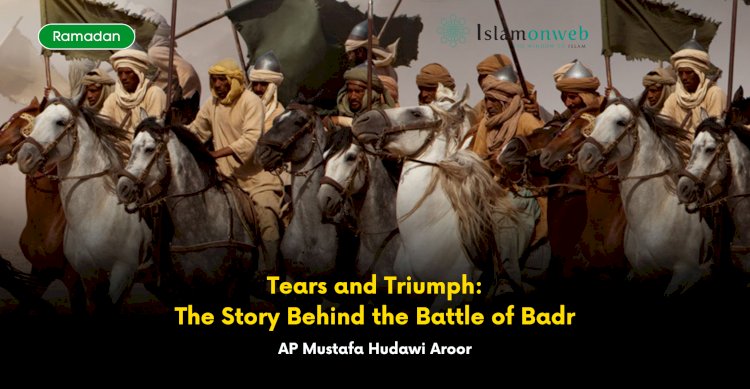


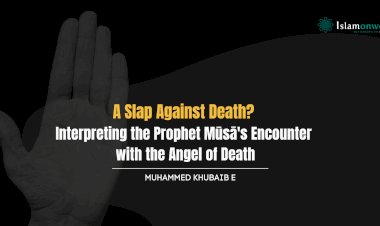
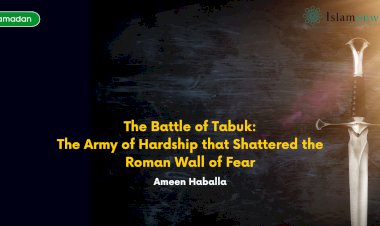
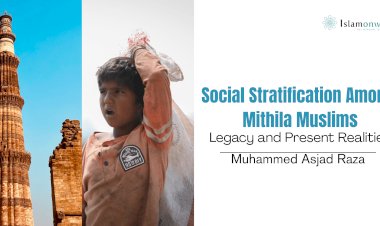
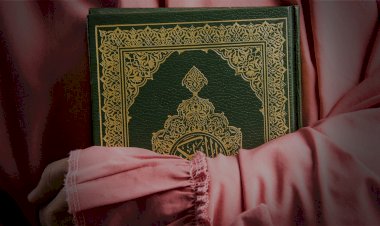
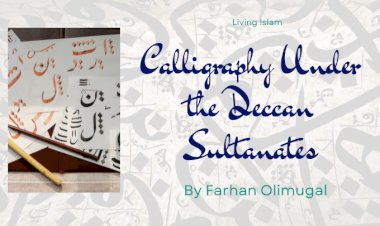
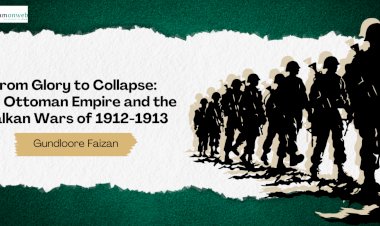














Leave A Comment